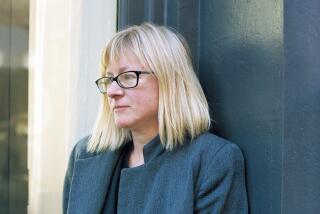Giving dignity to the help
Let US pause for a moment and imagine literature without Bloomsbury. That group of writers, philosophers and artists occupies a fertile spot in our minds.
Questions like: Is it possible to have a happy marriage without fidelity to one’s spouse, how much freedom of spirit does an artist need in order to create, how much cross-fertilization of ideas among friends, how much money to be free?
These queries (and many others) disappear into that dark hole, forever unanswered. We do know that these people were prolific; generous with their process and with the conversations that bubbled among them for decades and on into new generations. So something was working. Between Virginia Woolf’s diaries, her books and the thousands of books about Bloomsbury, it’s possible to really know a great deal about how she thought, the decisions she faced and the issues she struggled with. It’s a fair question: Do we really need another book on Bloomsbury?
The answer is, resoundingly, yes. Especially “Mrs. Woolf and the Servants.” Aside from the prurient and too-deep interests of fanatics like myself (a lifelong interest in details sordid and philosophical that rivals my daughter’s fascination with “Gossip Girl”), the fact remains: Without servants, there would have been no Bloomsbury.
Virginia did not learn to cook until 1929, when she was 47. She wrote proudly to her friend Vita Sackville-West that cooking made her “free forever of cooks. I cooked veal cutlets and cake today. I assure you it is better than writing these idiotic books.”
In all fairness, few houses in London in the first third of the 20th century had any labor-saving devices, much less flush toilets. Emptying the chamber pots (often up and down several flights of stairs) was the equivalent of window washing in our time. It is also true that Virginia and her siblings grew up in a turbulent household. Virginia’s mother, Julia, died in 1895. Virginia’s older half sister, Stella, died two years later. Her half brother, George Duckworth, was regularly making sexual advances. There were five live-in servants, including Sophie Farrell, who raised the girls and stayed with the family for 15 years.
From the diaries, we know that Virginia, who suffered from debilitating depression, hated having servants. She hated her dependence on them, the dramas of their lives and the constant lack of privacy, though she admitted that their talk provided a “window on the world.”
She spent many hours of her life arguing with Nellie Boxall, a cook who worked in Virginia’s households on and off for 18 years. It was, perhaps, her desire to be free of Nellie, to have “the psychological, emotional space as well as the literal, physical separation from others,” that inspired “A Room of One’s Own.”
“Is the charwoman who has brought up eight children of less value to the world than the barrister who has made a hundred thousand pounds?” she asked in that essay. But in spite of her belief in feminism, Alison Light shows, Virginia’s hypocrisy when it came to the rights of her female servants is unavoidable. Virginia herself noticed the hypocrisy and blamed it on society, bemoaning the amount of time she has “wasted in talking about servants. And it can never be done with because the fault lies in the system. How can an uneducated woman let herself in, alone, into our lives? -- what happens is that she becomes a mongrel; & has no roots any where.”
Light’s aim in writing the book is “to give the servants back their dignity and the respect they deserve.” Her grandmother on her mother’s side was a live-in servant: “Her memories were grim and she often talked of being ‘treated like dirt’ by other women.” This only enhances Light’s remarkable ability to see both sides and to create a history that leaves moral judgments to the reader.
Virginia Woolf, by any standards, had a snooty streak, fed by her fear of all people, especially those she was forced to depend upon. Light doesn’t take away from Bloomsbury’s legacy. She adds the dignity and intelligence of the people who made all those conversations, all those books possible.
--
More to Read
Sign up for our Book Club newsletter
Get the latest news, events and more from the Los Angeles Times Book Club, and help us get L.A. reading and talking.
You may occasionally receive promotional content from the Los Angeles Times.






